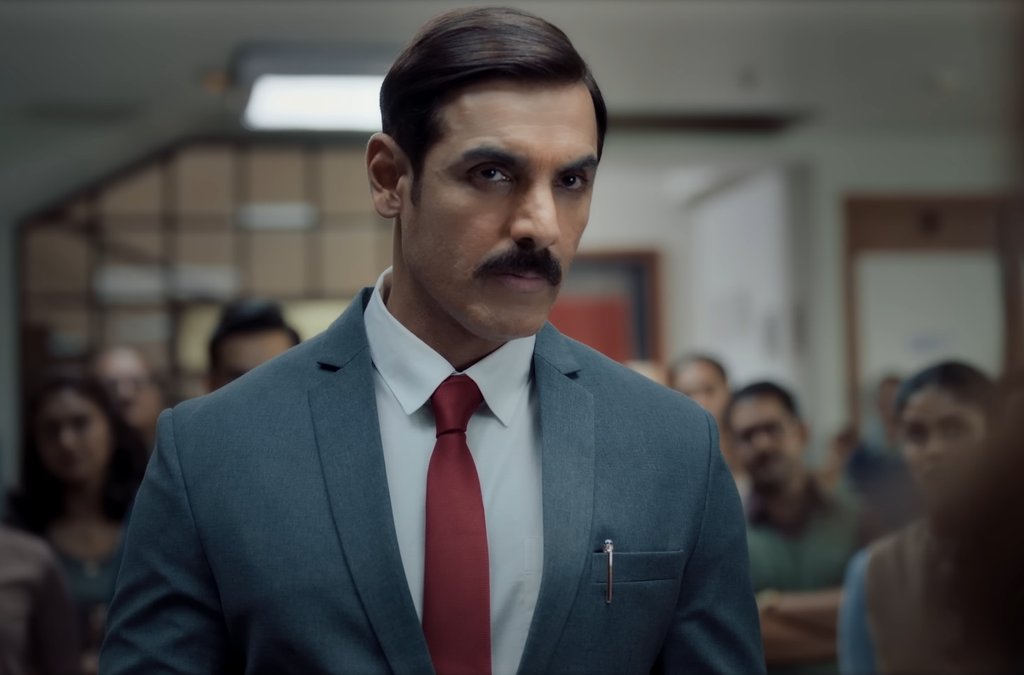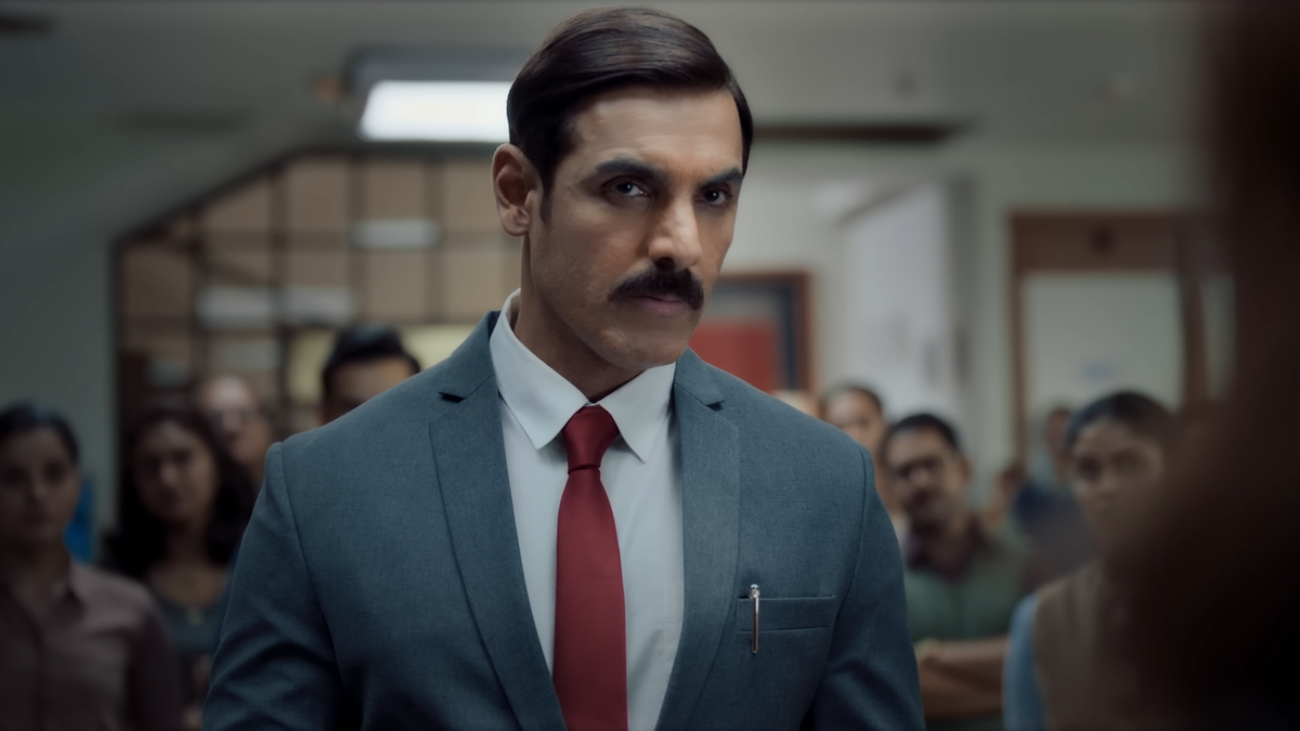
Read our concise review of The Diplomat, starring John Abraham and Sadia Khateeb. Discover why strong performances can’t save this flawed retelling of a real diplomatic rescue.
In 2017, a narrative that elucidated the extraction of Uzma Ahmed from Pakistan by Indian diplomats stood as a cross-border diplomatic achievement. The Diplomat, directed by Shivam Nair and created by John Abraham who also stars in it, revisits that mission through the perspective of diplomat JP Singh. While the film boasts compelling performances, its oversimplified storytelling and factual errors dilute the gravity of the real incident; hence an opportunity missed.
Plot & Performances: Highs and Lows How the Story’s Promise Measures Up Uzma, a single mother, fell in love with Pakistani taxi driver Tahir in Kuala Lumpur. She finds herself married off to him and trapped in Pakistan’s volatile Khyber Pakhtunkhwa. JP Singh is the diplomat assigned to bring her back. While the premise is quite gripping, the screenplay just rushes through these implausible details, like Uzma moving to Pakistan for her daughter’s “naturopathy treatment” in a mining town. Her backstory is not fully developed (no mention of parents or first marriage), leaving gaps in her motivations.
John Abraham does not adopt aggressive diplomacy; instead, he shares it with JP Singh in a more subdued manner. The characters fit him well, but the script limits him to rather muscular dialogue and table-thumping bravado. Sadia Khateeb gets the best performance out of the film, balancing vulnerability and resilience in Uzma. The film probably underutilizes her in a courtroom breakdown because she anchors so much emotional weight in scenes relating to Tahir’s abuse.
Revathy shines briefly as Sushma Swaraj, capturing her grace in limited screen time.
Kumud Mishra (a sympathetic lawyer) and Ashwath Bhatt (a clichéd ISI villain) are reduced to stereotypes.
Sharib Hashmi adds nuance as a conflicted diplomat but is sidelined.
Ritesh Shah (Pink) tries to give Pakistani characters a human face beyond mob mentality or simplistic villains. There is little tension in the courtroom drama, and the repeated assertion by JP Singh of Uzma being a “Muslim girl” feels jarringly out of place. Shivam Nair lets the plot holes slide because of his brisk pacing and style, but the nationalist undertones of the narrative clash with its claim to neutrality. The film’s “true story” tag weakens with simple mistakes, like mixing up embassies with high commissions. Portrayals of Pakistani society and its legal system lean on stereotypes, leaving out cultural nuances (for example, no one asks Uzma about her marital status). Such flaws mirror John’s earlier production, Vedaa, where commercial tropes overshadowed real-life stakes. There is also the issue of a disclaimer. A lengthy disclaimer claims the film avoids harming Indo-Pak relations—yet invents an attack on Indian diplomats. This contradiction highlights the film’s struggle to balance drama with authenticity.
Final Verdict: Style Over Substance The Diplomat squanders its potential with shallow writing and factual missteps. While Abraham and Khateeb deliver strong performances, the film prioritizes melodrama over meaningful insight into diplomacy or Uzma’s ordeal. For those seeking a gripping true-story adaptation, this isn’t it.
Engagement Prompt: Have you seen The Diplomat? Do you believe Bollywood gives justice to real-life stories? Share your views below!


